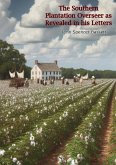Fascinating journal of a small farm holder in Maryland in the Antebellum South."e;Life at Ferry Hill was very different from that on a major staple crop plantation where the laborers worked in gangs, in routine, and under close supervision. The cultivation and harvesting of corn, wheat, barley, oats, rye, clover, hay, and potatoes; the threshing and milling of the grain; the daily feeding and care of cattle, horses, sheep and hogs, and the slaughter of animals and curing of meats; the growing, harvesting, and preservation of apples, and the manufacture of cider, vinegar, and apple butter therefrom; the daily supervision of the ferry; and the cutting of wood for fuel and timber for lumber and shingles for sale, all of which took place at Ferry Hill, could not easily be carried on by slave gangs in routine and under supervision. Consequently the laborers at Ferry Hill worked individually with little or no supervision. Nor were they assigned tasks to do. Blackford never employed an overseer, he chose to manage the plantation himself and to give general supervision to his slaves and hired laborers. But he did not, as a small farmer would have done, work with his slaves. He did no manual labor. It was his function to formulate policies and see that they were carried out. Nor was Blackford and his plantation unique in this respect. They were typical of many planters and plantations of the Maryland-Virginia area.The Ferry Hill Journal furnishes its own warranty of truth and authenticity. It deals concretely, unconsciously, generally impersonally, and in evident faithfulness with life as it was lived on the plantation. Since Blackford was the supervisor as well as owner he not only saw but experienced the life about which he wrote."e;-Introduction.
Dieser Download kann aus rechtlichen Gründen nur mit Rechnungsadresse in A, B, BG, CY, CZ, D, DK, EW, E, FIN, F, GR, HR, H, IRL, I, LT, L, LR, M, NL, PL, P, R, S, SLO, SK ausgeliefert werden.









